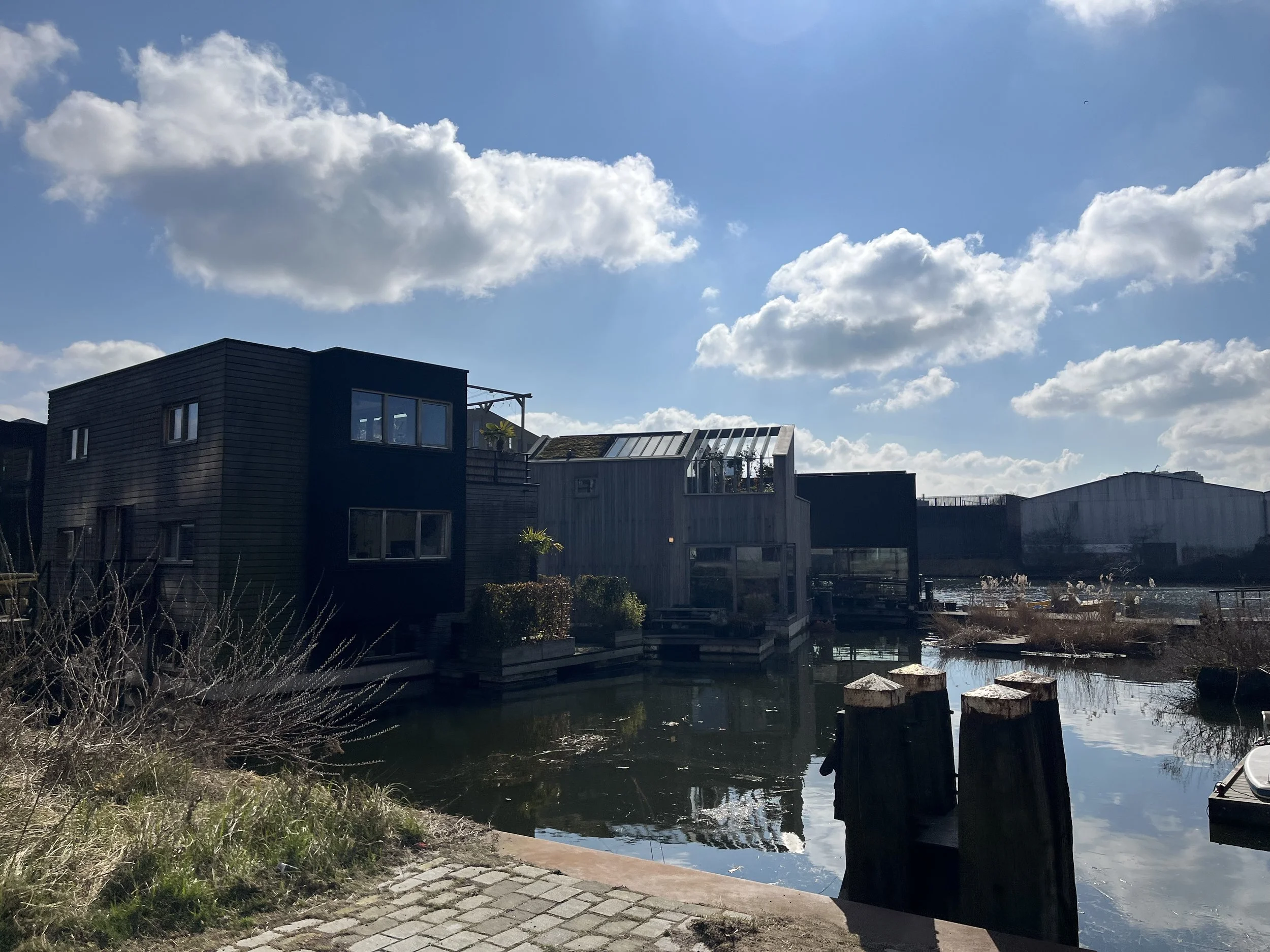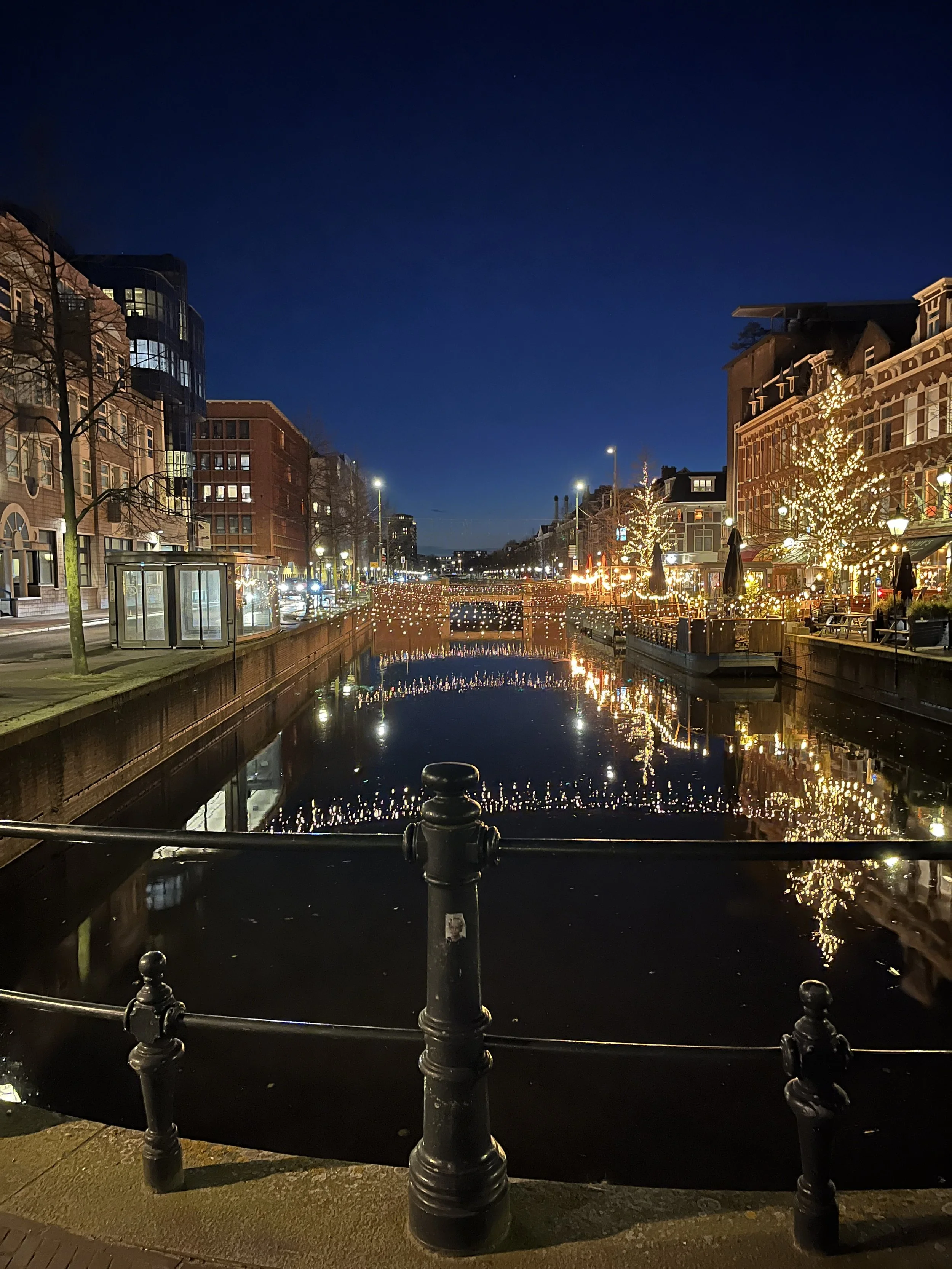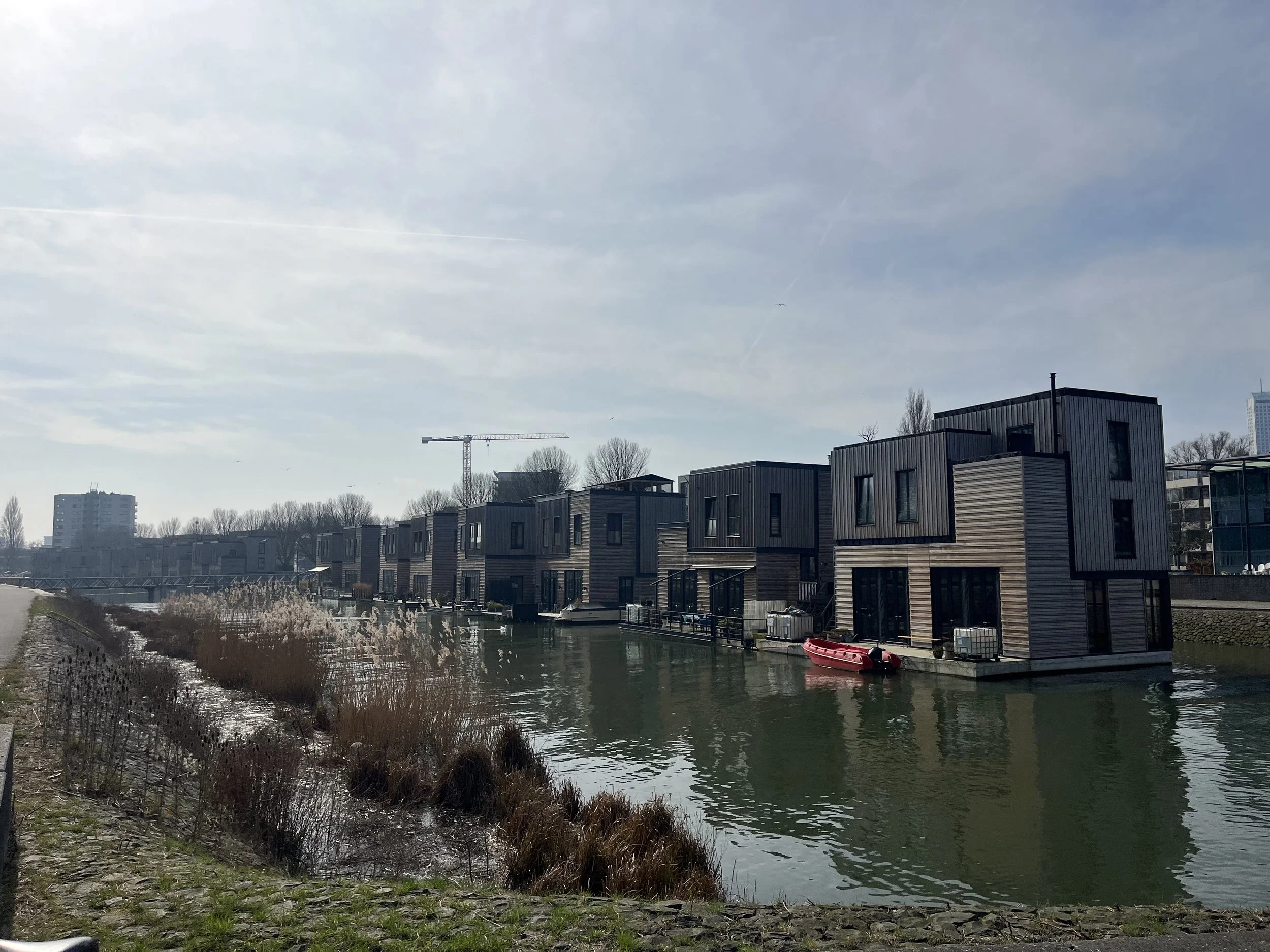My time in the Netherlands offered an inspiring glimpse into how a country built at the mercy of water is working through questions of climate adaptation and resilience.
After
Floating neighborhood community of Schoonschip, which is located in Amsterdam Noord.
As someone passionate about urban design and climate justice, witnessing firsthand the ingenuity and cultural mindset behind Dutch water management has influenced my aspirations.
Rotterdam’s modern design—shaped by its reconstruction after WWII—demonstrates how a place can reimagine itself through crisis. What also stood out to me were the grassroots initiatives making the city more climate-resilient from the ground up. It was a reminder that adaptation is greatly influenced by the people and communities determined to shape their own futures.
At RDM Campus, we witnessed how applied sciences are being used to tackle real-world problems. I especially valued the chance to connect with Dutch students who are working on projects that merge design, engineering, and sustainability. The experience offered an exciting look into how other universities are structured to encourage practical innovation. As a whole, I was reminded of the power of interdisciplinary collaboration and learning from different educational and cultural systems.
Perhaps the most impactful moment for me was our bike tour through Amsterdam Noord with Lot Locher. Her work with One Architecture, and especially her involvement in the Ground for Wellbeing Project, truly resonated. One Architecture represents exactly the kind of interdisciplinary design team I dream of joining—where designers, architects, and planners work together to build more resilient and sustainable cities. Lot’s grounded approach to design, rooting in social wellbeing as much as technical design, was inspiring and affirming.
Learning about the technical challenges the Netherlands faces—such as saltwater intrusion into polders, freshwater scarcity, and the increasing strain on flood defenses due to sea level rise—made it clear that even the most experienced countries are rethinking their strategies. The Dutch are now asking not just how to maintain their current systems, but how to do things differently—socially, technically and culturally.
This experience made me realize how I would like to contribute to this kind of work—both in the Netherlands and beyond. It takes creativity, attention to detail and social consciousness. I’m especially drawn to the concept of soft power, as articulated by Peter Glas over dinner—bringing people together, facilitating dialogue, helping communities and policymakers imagine options for the future, and guiding them toward thoughtful, systemic action.
As we confront the climate crisis, we must learn from others—recognizing how history, power structures, and cultural nuance shape the way we respond. My time in the Netherlands affirmed that resilient cities are not just engineered—they are cultivated through trust, experimentation, and inclusive design. I want to spend my life helping build them.


